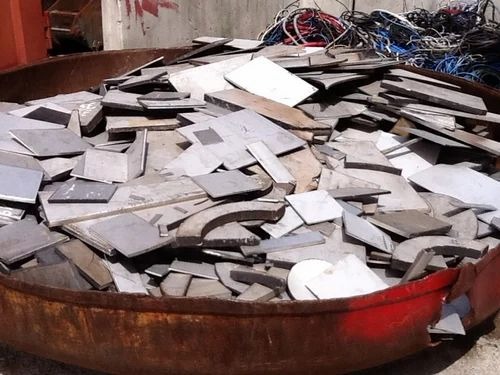Inconel 600 Scrap Importers
The
global demand for high-performance materials has grown significantly over the
past few decades, with Inconel 600 being one of the most sought-after alloys.
Known for its exceptional resistance to heat, oxidation, and corrosion, this
nickel-chromium alloy is extensively used in industries like aerospace,
chemical processing, and power generation. As industries strive to adopt more
sustainable practices, the role of Inconel 600 scrap importers has become
increasingly important in promoting circular economies and reducing
environmental impact.
Why Inconel 600 Scrap is Valuable
Inconel
600 is not your ordinary metal. Its unique properties make it an indispensable
material for critical applications. However, these same properties also make it
expensive to produce from raw materials. Recycling Inconel 600 scrap provides
an eco-friendly and cost-effective alternative to mining and refining new
materials. By reprocessing scrap, manufacturers can:
- Reduce Production Costs: Utilizing recycled Inconel
600 scrap can significantly cut down on the costs of producing high-grade
materials.
- Conserve Natural Resources: Recycling reduces the need
for mining nickel and chromium, helping preserve finite natural resources.
- Minimize Environmental
Impact:
Scrap recycling requires less energy than primary production, lowering
greenhouse gas emissions and other pollutants.
The Role of Importers in the Recycling Chain
Inconel
600 scrap importers play a pivotal role in bridging the gap between industries
disposing of scrap and manufacturers seeking raw materials. Their
responsibilities include:
- Sourcing High-Quality Scrap: Importers identify
reliable sources of Inconel 600 scrap globally, ensuring a steady supply
chain for recycling facilities.
- Ensuring Compliance: Importers adhere to
stringent international regulations and standards for the transportation
and processing of scrap metals.
- Facilitating Global Trade: By importing scrap from
various countries, these businesses help maintain a consistent supply of
recycled materials across borders, reducing dependency on primary
production.
- Driving Sustainability: Importers actively
contribute to a circular economy, promoting recycling practices that
reduce waste and promote resource efficiency.
Key Challenges Faced by Importers
While the
benefits of recycling Inconel 600 are evident, importers face several
challenges:
- Regulatory Hurdles: Navigating the complex web
of international trade laws and environmental regulations can be daunting.
- Quality Control: Ensuring the imported
scrap meets the required standards for recycling can be challenging, given
the variability in scrap quality.
- Market Volatility: Fluctuations in global
metal prices can impact the profitability of importing and recycling
Inconel 600 scrap.
- Logistical Issues: Transporting scrap across
borders involves significant logistical coordination and cost management.
The Future of Inconel 600 Scrap Recycling
As
industries worldwide commit to reducing their carbon footprints, the demand for
recycled materials like Inconel 600 is poised to grow. Innovations in recycling
technology and increasing awareness about sustainable practices are likely to
drive advancements in the scrap recycling industry. Importers will continue to
play a crucial role, acting as catalysts for change in the global supply chain.
Conclusion
Inconel
600 scrap importers are unsung heroes in the quest for sustainability. By
connecting industries with high-quality recycled materials, they not only help
reduce environmental impact but also make advanced manufacturing more
economically viable. As the world shifts towards greener practices, the
importance of these importers will only increase, underscoring their role in
shaping a sustainable future for the metal industry.
For inquiries or detailed specifications, contact Omkar
Metal Corporation today!
Contact: +91-7878558762
Email:
sales@omkarmetalcorporation.com
Visit us: https://www.omkarmetalcorporation.com/




Comments
Post a Comment